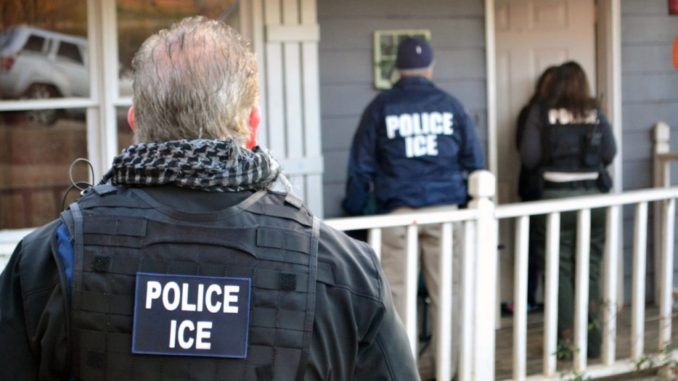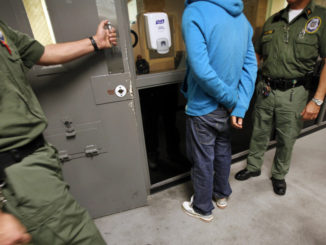
Last week, federal immigration officials seized an unauthorized immigrant at an El Paso courthouse where she had been seeking a protective order against an alleged domestic abuser. The judge who oversees the court that issued the protective order expressed dismay that such a seizure took place when the person was seeking protection from violence, and perhaps acting on a tip provided by the alleged abuser himself.
President Trump has said his proposed actions to stiffen immigration enforcement are in the interests of public safety, but seizures such as the one in El Paso and the proposed revitalization of the 287(g) program that deputizes local law enforcement to enforce federal immigration law make the public less safe and interfere with local policing priorities.
Certainly, immigration enforcement falls within the federal government’s prerogative, regardless of one’s opinion on current immigration laws. However, that does not make every single enforcement action wise or justifiable. Moreover, the respect for federalism — the recognition of state and local governments’ priorities over the whims of Washington — has long been a mantra of small-government Republicans. Yet, it is hard to think of a larger and more dangerous federal intrusion into local affairs than undermining local law enforcement.
Seizing a person who is seeking refuge from violence subverts the protective function of police officers. If individuals fear as much from law enforcement as they do the criminals living among and victimizing them, they will not come forward to report crimes or cooperate with criminal investigations. Non-cooperation makes police officers’ jobs harder by emboldening and enriching criminals who, consequently, may operate with impunity where people are less willing to help investigators.
One Los Angeles Police Dept. detective told the Los Angeles Times, “It is my job to investigate crimes. . . . And if I can’t do that, I can’t get justice for people, because all of a sudden, I’m losing my witnesses or my victims because they’re afraid that talking to me is going to lead to them getting deported.” When he recently approached a group of Latino workers to investigate a crime, they stood up and walked away. Even though Los Angeles has repeatedly asserted its self-appointed status as a “sanctuary city” for immigrants, one of the workers uttered “Trump is coming,” as he left.
Montgomery County police chief and head of the Major Cities Chiefs Association J. Thomas Manger lamented the administration’s lack of concern for local law enforcement priorities. He told The Post that local law enforcement is invested in “retaining the trust of the immigrant communities, not having the immigrant communities afraid of contacting the police.” He added, “If we alienate the immigrant community, we’re sunk.”
Inherent suspicion of police is dangerous to a community’s well-being, whether that community is comprised of immigrants or the native born. We have seen the deleterious effects of poor relationships between police officers and African American communities. Author and journalist Jill Leovy explains that many black neighborhoods are simultaneously overpoliced for petty crimes and infractions while being underpoliced for violent crimes such as homicide. The lack of trust of police in many African American communities discourages cooperation with police and, consequently, black homicides go unsolved at staggering rates. This dual failure feeds a cycle of mistrust and mutual antagonism between the police and those who need their protection the most.
Many law enforcement officials recognize this and are trying to remedy this trust gap. Earlier this week, a group of police chiefs and prosecutors released a five-point blueprint for the new administration to consider as it establishes its law enforcement priorities. Among other “smart on crime” proposals, the law enforcement leaders stressed the importance of fighting violent crime and supporting community policing efforts rather than aggressively pursuing non-violent violations as ways to build community trust. Not only does a lack of trust make policing harder, the release explicitly stated, but also “a mistrustful community puts police officers at risk.”
The federal government has the authority to enforce its immigration laws, but it should do so with discretion and in a way that aligns with the public trust. Likewise, local law enforcement should be free to protect the communities they serve in line with each community’s best interests. Taking law enforcement actions against people seeking protection is dangerous and irresponsible. Threatening those most vulnerable to crime is anathema to improving public safety.
Jonathan Blanks is a research associate in the Cato Institute’s Project on Criminal Justice and managing editor of PoliceMisconduct.net



